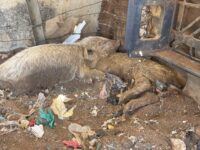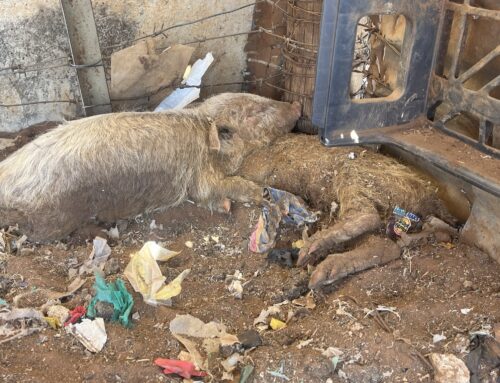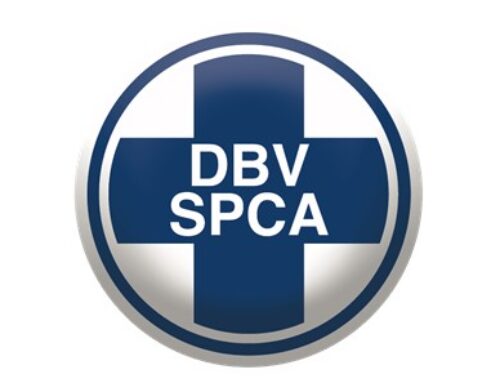The National Council of SPCAs (NSPCA) attended to the Fairy Glen Nature Reserve (“Fairy Glen”) in Worcester, Western Cape during last week to assist three illegally kept lions that were severely burned during wild fires in the area. Grace de Lange, NSPCA Chief Operations Officer explains that “one male and two females were left vulnerable to the raging wildfires, resulting in burns that inflicted brutal suffering upon them”.
The NSPCA dispatched a team, including renowned veterinary expert for big cats, Dr Peter Caldwell, to assess and assist the lions. Dr Caldwell is one of the world’s top carnivore veterinarians and has been instrumental in the well-being of big cats in South Africa. Despite Fairy Glen procuring veterinary treatment for the animals, the treatment plan was highly questionable, with the lions left under conditions in which continued suffering was apparent. At that stage, only one lion was treated. The situation was exacerbated by the fact that treatment for the two lionesses was only initiated on Tuesday, 30 January 2024 – four days after the lions were burnt.
The lions sustained serious burns to their paws, eyes, mouths and chests, with secondary infections. Burn wounds were observed on the male lion’s tongue and the lions were left extremely dehydrated. It was apparent that one female lion was too weak to stand up. The lions were left in confinement for six days after sustaining the burns, with the male having pressure sores from being immobile.
A devastating site was the male lion keeping his hind paw in the dirty water trough, in a desperate attempt to relieve his immense pain, whilst being unable to stand or move around.
Dr Caldwell distressingly explained that all three lions were supposed to be in intensive care.
After due consideration for the well-being of the animals and the extremity of their injuries, the three lions had to be humanely euthanised, to prevent further suffering. The NSPCA ensured the incineration and safe disposal of the carcasses, to ensure that the bones cannot be channelled to the lucrative black market.
Other than the tragic burns suffered by the lions, the camps for these magnificent creatures were too small, whilst provincial regulations require at least a ½ hectare per lion. The camps were soiled with rotting chicken carcasses, infested with maggots. Fairy Glen also held no license in terms of the Performing Animals Protection Act 24 of 1935 for the animals, despite in essence operating as a zoo, with animals confined and exhibited for profit.
Thanks is extended to the Cape of Good Hope SPCA who assisted the NSPCA Team herein, especially in the preliminary investigation stages; as well as to Dr Caldwell for his expert and compassionate assistance herein.
The NSPCA is considering its next steps to ensure that those who are responsible for the immense and continued suffering of these sentient beings are brought to book.



If you are as passionate about animals and their well-being as we are, consider supporting our causes by donating.
Latest News Posts
Will You Be the One Who Takes Action?
Most people will scroll past this. But will you be the one who stands up for animals?
Animal welfare isn’t always in the spotlight, but it changes lives – for every neglected, abused, or suffering animal we help. Our teams work tirelessly, often behind the scenes, ensuring animals across South Africa are protected.
This work is relentless. The challenges are immense. But with more hands, hearts, and resources, we can do even more.
The equation is simple: the more supporters we have, the greater our reach, the stronger our impact.
Be part of the change. Become an NSPCA Project Partner today. From just R50 per month, you can help ensure that no animal suffers in silence.








